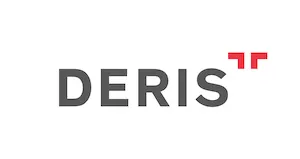How are perishable products suspended and preserved before the Turkish customs?
Registering IP rights before Customs is a strong way of IP protection as it provides cumulative protection over all Turkish borders and customs authorities. By having a registration, right holders obtain ten business days to pursue legal routes against the suspicious products. However, this period is shorter and limited with three business days for perishable goods. At this point it is essential to understand how does the Customs determine if a product is perishable or not?
IP Rights registrations before Customs are increasing yearly, providing a preclusive protection to act against counterfeiters and giving the right holders the opportunity to combat effectively counterfeit goods before they enter the market.
According the Turkish legislation, while Customs grants ten business days to the right holders to examine if the suspended goods are counterfeit and to take the necessary legal actions for preventing the release of the goods , this suspension period is comparatively shorter, only three business days- when perishable goods are in question even if the subject trademark is registered before the Customs. Therefore, determining if the products are perishable or not is of great importance for the right holders, as their deadline to take action depends on the same.
In a recent case, Customs issued a suspension decision for three business for suspicious carbonated beverages bearing the Right Holder's trademark registered before the Customs, by referring to the perishable nature of the suspended products. Such decision was contradicting with the earlier decisions of the Customs issuing ten business days for the same goods and accordingly, it was needed to clarify how the perishable nature of the products are determined according to the Turkish Law.
"Sampling Guide" published by the Ministry of Commerce about the storage necessities of the products
The source for determining perishable products is the "Sampling Guide" published by the Ministry of Commerce. In the guide, perishable products are listed as "B1" products, which must be carried and stored in its original packaging and in refrigerated cabinets. Some examples for "B1" products are powdered/concentrated milks, fruit preparations, vegetables etc.
In practice, some products such as carbonated beverages and soft drinks may be misjudged and categorized as perishable goods at Customs even though they are not categorized under "B1" section in the Sampling Guide of the Ministry. Such misjudgment causes the right holders to have a shorter period of three business days to act against the suspended goods, while they should have been given ten business days. This period is crucial for the foreign right owners especially who work in different time zone from Turkey. It is nearly impossible to review the nature of these suspicious goods, receive instructions from the rights holders and apply to the necessary legal routes within three working days. In other words, to accurately determine perishable nature of suspended goods is vital to avoid any loss of right since the right holders need to act swiftly in a very short deadline.
In the present case, after submitting an explanatory petition to the Customs referring to "Sampling Guide" of the Ministry, the Customs issued a correction decision by stating that carbonated beverages are not categorized as perishable products and accordingly re-issued the suspension decision for ten business days.
In case of receiving a decision about the nature of the products, the Right Holders may refer to the "Sampling Guide" of the Ministry to obtain a correction decision.
Sources;
For more information please visit our Linkedin page - Deris Intellectual Property
The content of this article is intended to provide a general guide to the subject matter. Specialist advice should be sought about your specific circumstances.



